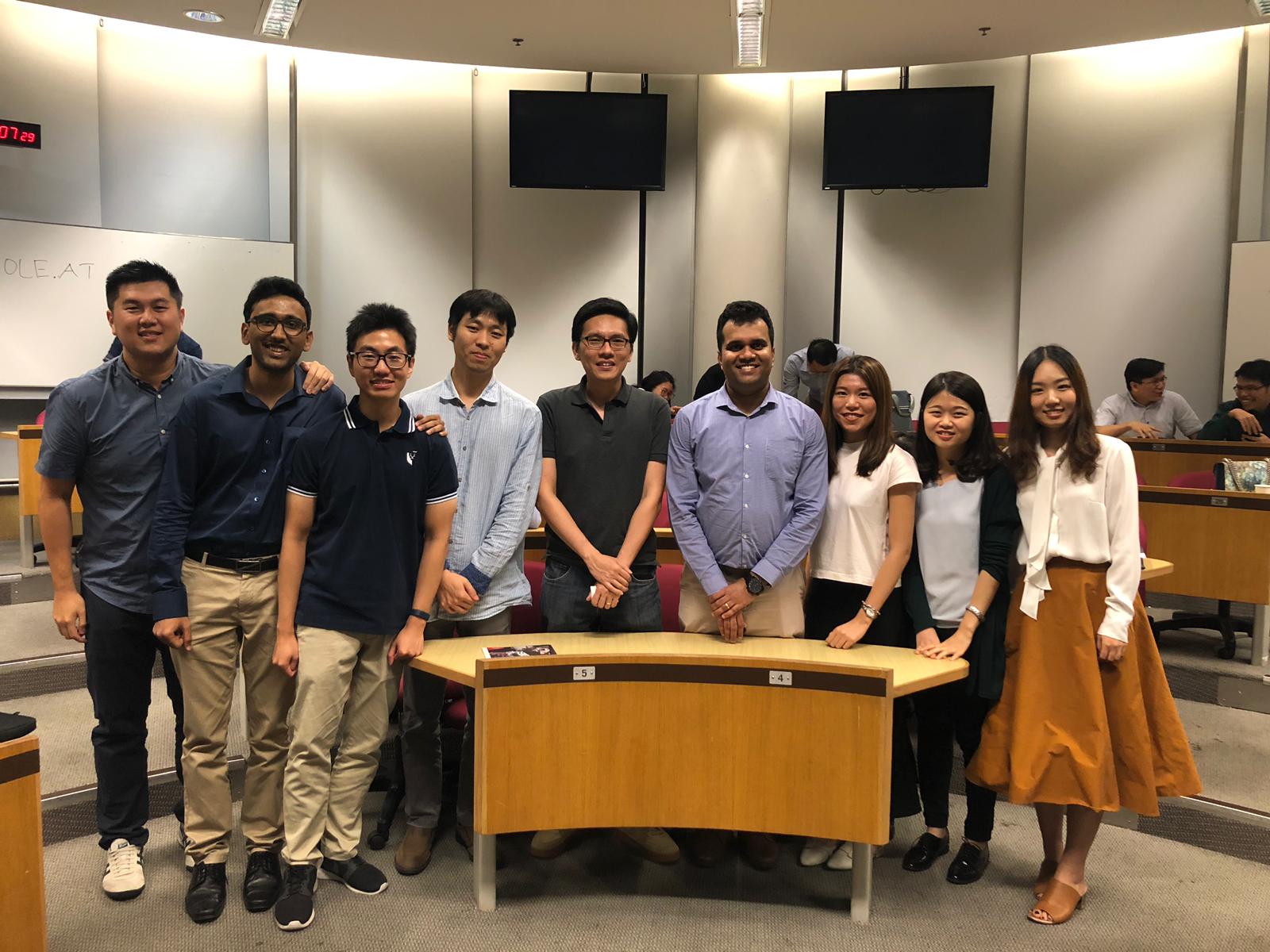
“How are big data and Artificial Intelligence (AI) going to change the accounting industry, and how should an auditor keep up with these changes?” I remembered just one year ago, I asked the same question during my interview for the MSA programme, when I was still an auditor in an audit firm.
Now, the answer becomes clearer to me, after having completed half of the MSA programme. Last week, I attended the inspiring “Data Analytics in Internal Audit” talk, conducted by Dr. Ved Prakash and Dr. Liu Cheng, data scientists from the internal audit department of GIC Private Limited. This reaffirms my commitment to enhancing my personal and professional development – by embracing data & analytics.


Here are what the two speakers have shared:
Data analytics as the strong line of defence in audit
With an increase in business risks and the availability and complexity of data, GIC set up their data analytics team in the internal audit department in 2016. The data analytics team serves as the last line defence in the operations and compliance control, highlighting the anomalies where traditional controls may fail to flag out. In addition, it also supports the audit team in conducting data exploration and visualisation, which contributes to their better understanding of work processes. The implementation of data analytics increases the efficiency and effectiveness of the auditing work.
Python and Tableau are the main tools for data visualisation
At their current workplace, Python is the main programming language used to code, and Tableau is the main tool for data visualisation. Moreover, the team is required to have in-depth knowledge in statistics and machine learning techniques, so that they could apply either supervised or unsupervised learning in the data modelling and selection process.
Bridging the gap between domain experts and data analytics
From data feed, data processing to producing desired outcomes, the two speakers mentioned a common issue that the project members face – the lack of knowledge of each other’s domain. For example, the data owners lack the knowledge in model building, and do not understand what data may be useful for the data analytics team. On the other hand, the data engineers also face challenges because they lack the domain knowledge in accounting and do not fully understand the control processes. Therefore, effective communication is critical in its daily operations.

My takeaway from the GIC seminar:
Just as what Dr. Liu Cheng has shared, “We cannot foresee the change, so we should adapt to it.” The digital disruption does bring about challenges, but it also offers an opportunity to leverage data analytics in the traditional accounting function. I remembered how impressive it was when Dr. Ved demonstrated the model for outlier detection in the procurement cycle, where the team combined structured and unstructured data, and utilised machine learning to highlight the outlier. The results retrieved from the model was so insightful that I could not imagine how it could be achieved if auditing was still conducted manually.
However, without humans interpreting the outcomes, a model cannot explain itself. It brings us back to the question; how could an accountant keep up with these changes? My answer is accountants and finance professionals like us should embrace big data. We should start learning programming languages and understand machine learning techniques. With these skill sets and our domain knowledge in accounting, we could serve as a bridge between the technical and business functions in an enterprise. This is where new opportunities will arise – for both employees and businesses.

Attaining my future goals with data & analytics
I am fortunate to start my big data journey with the MSA programme in August 2018. The programme equips me with the essential skills to harness data for critical decision making. We learn to make use of tools such as R, Python, Tableau, and SQL for data analysis, data visualisation and data management. Most important of all, I could learn the machine learning techniques, and understand how they can be applied to the accounting and finance work to interpret data and build predictive models.
What I have learned in the MSA programme will broaden my future career paths. I am eager to apply data analytics in the finance and accounting functions. With the skills that I have learned in class, I am excited that I am now empowered to make better business decisions by leveraging data & analytics. I can conduct analysis to identify trends, forecast revenue and business growth, and explore market opportunities.
Data & analytics is definitely the essential skill that I need for the future.
Find out more at our complimentary master class. Register here: https://eventregistration.smu.edu.sg/d/x6qzyl/